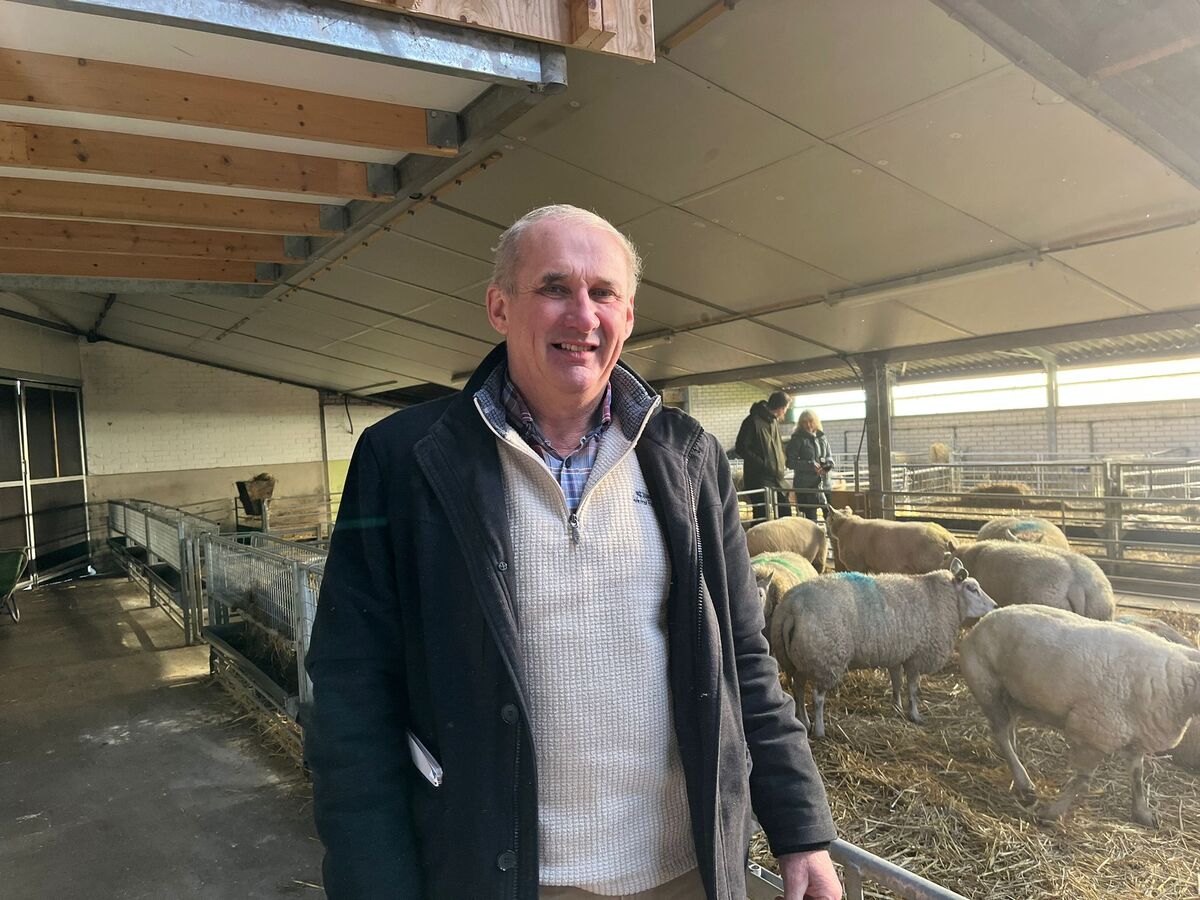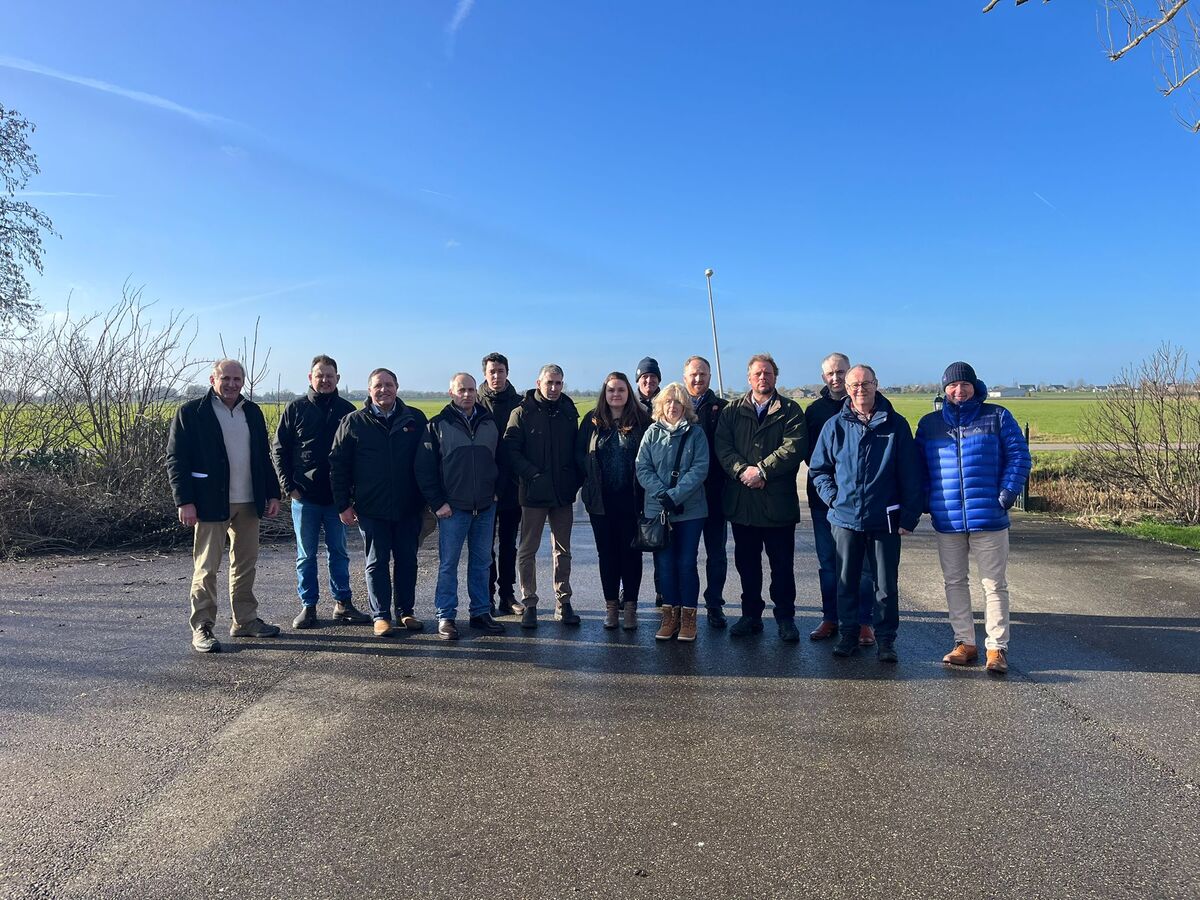When cases of bluetongue virus (serotype 3) were first reported in the Netherlands last September, little did the industry anticipate the devasting toll it would have. Bluetongue virus – a non-contagious viral disease that impacts ruminants – is spread by biting midges infected with the virus. By the end of January 2024, 6,000 cases in both sheep and cattle were reported. Clinical signs include swelling of the tongue and lips, lameness and death. The virus has cast a grim shadow not just in the Netherlands, but also across the neighbouring countries of Germany, Belgium, and Southeast England (66 cases at the time of writing). Whilst the exact origins of the virus in the UK remain unknown, it is thought that infected midges may have blown over from Northern Europe in the autumn.
Devastating impacts
To see the devastating impacts of bluetongue, a UK Farming Union delegation of farmers and advisors from England, Wales and Northern Ireland took to the Netherlands in January.
To grasp the severity firsthand, the delegation’s journey began at a sheep farm in Nieuwkoop, Western Holland. After first noticing the signs of bluetongue in autumn 2023, the farm lost around 65% of their flock. The delegation heard the progression of symptoms – initially manifesting as mouth lesions and knee wounds then evolving into lameness and severe pulmonary and renal complications. Affected rams are proved to be infertile for 10 – 12 weeks and therefore putting breeding programmes at risk.
Mortality rates in sheep are higher than other species including cattle, although rates can vary. Overall, it is thought that the Netherlands has lost 5% of its sheep flock since the onset of the virus in autumn 2023. Whilst the midge activity is low in the winter months and has provided little welcome relief for the agriculture community, the farmers expressed concern about the virus's potential resurgence with the onset of spring and heightened midge activity, this must also be a concern for the UK.
Drop in milk yield
Transitioning to a dairy farm in Harmelen, the delegates encountered a different facet of bluetongue's devastation. Milking 90 Red Holstein cows in a traditional milking system, the farm was infected with bluetongue in the autumn. Early symptoms of the virus included nasal discharge and ocular moisture in the cows, followed by tongue lesions. The farm unfortunately lost one cow to the disease, but they also experienced a notable drop in milk yield, echoing a similar concern across the country. The impact on the 1.5 million strong dairy herd has been expansive with a reduction in milk production for cows infected with bluetongue expected to be between 50 to 60 litres per cow.
Explaining the situation to the attendees, Rene van den Brom of GD Animal Health and an expert in Bluetongue, underscored the disease's desperate impact on sheep and cattle. While sheep endure higher mortality rates, cattle face fertility and udder health challenges. Despite mitigation efforts such as improved ventilation and biosecurity measures, the need for a vaccine is paramount, however, development may take months and the use of insecticides and repellents are not effective.
Thankfully bluetongue virus has not yet impacted livestock in Wales. Whilst midge activity is low in the winter and further spread of the virus is unlikely, there is real concern for the spring when the temperatures creep up. Should the virus reach Wales, it has the potential to have wide ranging welfare, social and economic implications.
Enormous pressure
Speaking after the visit, NFU Cymru livestock board Chairman Rob Lewis – who represented NFU Cymru in the Netherlands – said: “Visiting the farms in central Holland showed us front and centre how devasting the impacts of bluetongue can be. Luckily, we have not had any cases in Wales but with some farms in the Netherlands experiencing high mortality rates, if the virus was to come to Wales it could devastate our industry. If a major outbreak occurred in this country, then there would be enormous pressure on our rendering capacity.
"What struck me most was hearing the harrowing stories of the outbreaks first hand, but also how the industry has come together to support each other. We hope that we do not see the virus in Wales, but if we do, the industry must come together to find a collective solution. Whilst biosecurity measures can help, the most viable solution will be a vaccine.”

NFU Cymru Livestock Board Chairman Rob Lewis
The trip served as a poignant reminder of bluetongue’s indiscriminate impact and the urgent need for collaborative resilience within the farming community. As the industry braces for potential challenges ahead, the lessons learned from Dutch counterparts underscore the importance of preparedness, solidarity and innovation in safeguarding against future threats.
